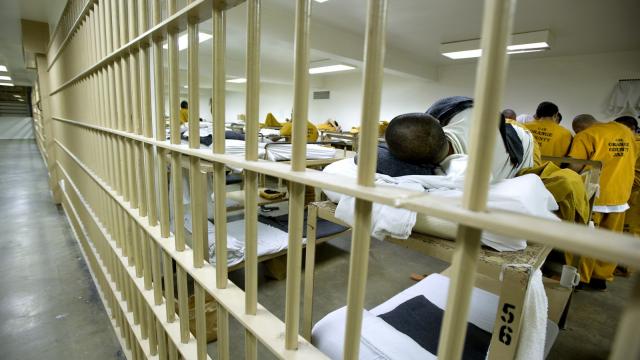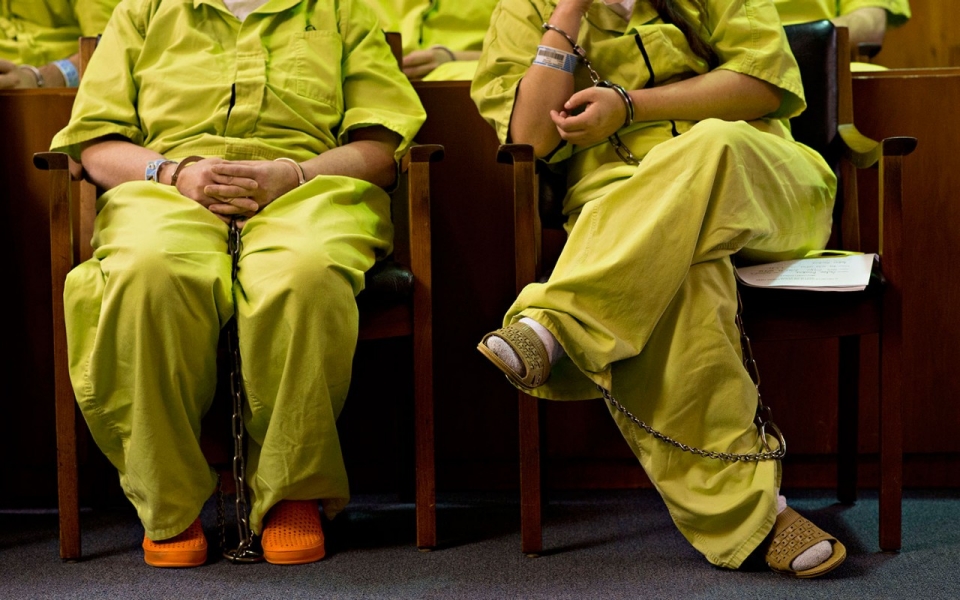
At least 3,728 prisoners in the United States will spend the rest of their lives in prison for non-violent offenses according to an American Civil Liberties Union (ACLU) study published on Wednesday.
The study found that 79 percent of these prisoners were convicted of nonviolent, drug-related crimes and 20 percent of nonviolent property crimes like shoplifting. Most of these cases were sentenced under mandatory minimum guidelines, for which judges had no choice but to dole out a life without parole sentence.
“Fairness has departed from the system,” said one judge as he sentenced a nonviolent offender to life in prison without parole.
In response to increasing criticism, Attorney General Eric Holder announced in August that the Justice Department would attempt to ease America’s overcrowded federal prisons by reducing mandatory drug sentences – a move that was cheered by liberals and conservatives, who favor a reduction in federal prison spending.
The study, “A Living Death,” also found a stark racial disparity: 65 percent of those sentenced to life without parole for nonviolent offenses are black and only 18 percent white. These findings coincide with previous studies showing that harsh sentencing laws unfairly target racial minorities.
Blacks, for example, make up 13 percent of the U.S. population but comprise roughly 45 percent of the state and federal prison population, according to statistics from the U.S. Department of Justice.
The report features a few particularly shocking cases of disproportionate sentencing, including that of Stephanie Yvette George, who was convicted for unknowingly storing crack cocaine in her attic.
The drugs belonged to the father of one of George’s children who was hiding them in a lockbox at George’s house. Because George had previously been convicted of minor drug offenses – never serving time in jail – Judge Roger Vinson had no choice but to sentence her to life without parole.
“Your role has basically been as a girlfriend and bag holder and money holder,” Judge Vinson said at the sentencing hearing. “So certainly, in my judgment, it doesn’t warrant a life sentence. If there was some way I could give you something less than life I sure would do it, but I can’t,” he added.
Human rights groups say prison sentences have grown disproportionate as part of the U.S. war on drugs, hence the high percentage of those sentenced to life without parole for drug charges.
"The punishments these people received are grotesquely out of proportion to the crimes they committed," said Jennifer Turner, an ACLU human rights researcher and author of the report. "In a humane society, we can hold people accountable for drug and property crimes without throwing away the key."
The United States has the largest incarceration rate in the world – nearly 25 percent of the global inmate population – despite having only 5 percent of the world’s population. In 2011 alone, there were 1.5 million drug arrests in the U.S., according to FBI statistics. More than 80 percent of those arrests were for drug possession.
Harsh sentencing guidelines are also proving costly to American taxpayers: the ACLU estimates the costs of keeping these prisoners in jail until they die – instead of more appropriate terms – at about $1.8 billion.
3 WAYS TO SHOW YOUR SUPPORT
- Log in to post comments












